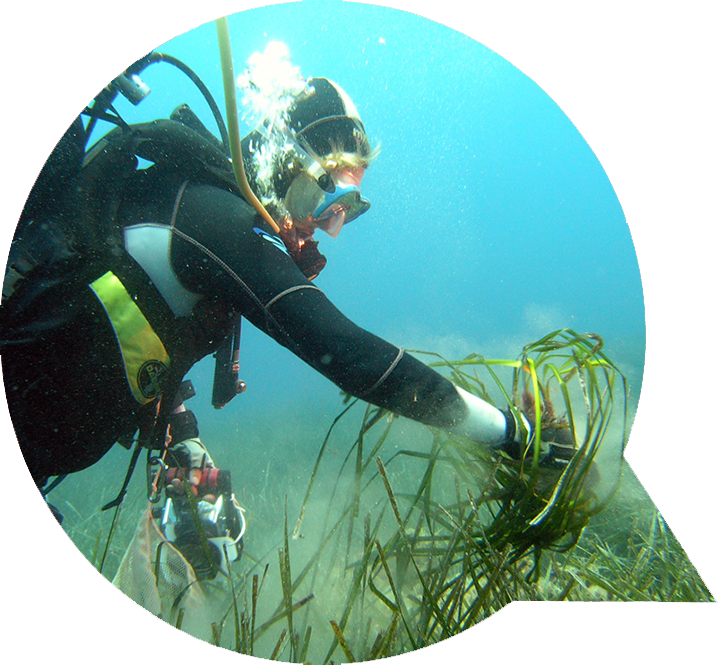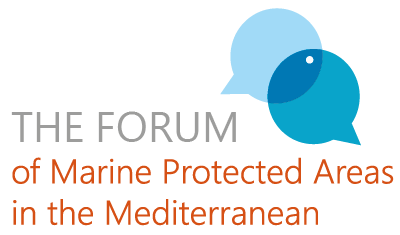STRATEGIC OBJECTIVE 3
Management and Knowledge
Ensure MPA management structures are effective and well coordinated across government and stakeholders to improve knowledge and ensure proper management of MPAs

Recommendation 3.1 MANAGEMENT PLANS
Develop or update management plans for each MPA that include at least: SMART objectives; integrated and site-specific management measures, with a zoning plan (where applicable); monitoring plan with well-defined indicators for the conservation actions; business/financial plans including feasibility assessments; stakeholder engagement strategies; strategies to manage, mitigate and adapt to supra-MPA challenges.
Strategies and Actions for Implementation
- Governments should dedicate funding for the development and updating of management and business plans
- MPA management and business plans should be updated every 5 to 10 years from their creation
- National MPA authorities should make management and business plans mandatory (see Recommendation 2.2)
- EU can require management and business plans to be mandatory upon designation of a MPA (not left to a later stage)
- The Barcelona Convention can strongly invite its Contracting Parties to develop management and business plans upon designation of an MPA
- Compile and publish MPA management plans that represent best practices
- Capacity building and training in MPA management plans, stakeholder engagement and business plan development as well as skills to address supra-MPA challenges
Relevant Geographic Level
- Regional (EU and UNEP/ MAP – Barcelona Convention)
- National
- Local authorities
- MPA
Priority Geographies for Implementation
While all countries should address this issue, priority efforts should be made in non-EU countries
Responsible Parties
- National environmental authorities
- European Union
- UNEP/MAP – Barcelona Convention
- Donors
- National and Regional IGOs, NGOs, networks of MPA managers and consulting companies that offer capacity building and training in MPA management and business planning
Indicators of Success
- Number of management and business plans developed
- Number of best practice management and business plans compiled and published
- Number of stakeholder engagement strategies
- Number of strategies to manage, adapt and mitigate supra-MPA challenges
Recommendation 3.2 NATIONAL ADVISORY BODIES
Create a national advisory body in each country, constituted by interdisciplinary practitioners (e.g. biologists, communicators, social scientists, economists, lawyers, planners, database and GIS experts, etc.) to work with MPA management bodies as additional support to MPAs.
Strategies and Actions for Implementation
- Involve prominent experts at national level that represent a diversity of disciplines
- Properly resource and provide technical support for the national advisory body
Relevant Geographic Level
- National
Priority Geographies for Implementation
All countries in the Mediterranean.
Responsible Parties
- National MPA authorities
Indicators of Success
- Number of countries with national advisory bodies
- Number and categories of experts involved
- Number of actions/projects/solved problems
Recommendation 3.3 STAKEHOLDER ENGAGEMENT
Promote and implement initiatives to strengthen MPA and stakeholder engagement (including fishers and local communities) to improve knowledge via citizen science, facilitate bottom-up management, and increase stakeholder acceptance and compliance.
Strategies and Actions for Implementation
- Develop stakeholder engagement training plan for MPA managers and staff that includes stakeholder analysis and a strategy for engagement
- Develop training and capacity building for stakeholders and local communities in MPA management
- Develop citizen science tools (logbooks, toolkits, etc.) and programmes (monitoring, volunteering, etc.) to sea users (scuba divers, professional and recreational fishers, youth, etc.)
- Establish partnerships between restaurants, fishers, MPA managers, and researchers to promote an ecosystem-based fishery management of non-indigenous species
- Conduct socioeconomic surveys to collect evidence of MPA benefits to further promote acceptance and engagement
- Regular consultations should be maintained between MPA managers and local community representatives and decision makers.
- Provide direct support to the organisation of small scale fisher organisations and promote their activities
- Use social media platforms to promote citizen science
Relevant Geographic Level
- Regional
- National
- Subnational
- MPA
Priority Geographies for Implementation
Priority efforts in non-EU countries.
Responsible Parties
- MPA managers
- National MPA authorities
- International and Regional organisations
- NGOs
- Networks of MPA managers
Indicators of Success
- Number of stakeholder engagement initiatives
- Number of stakeholders engaged
- Number of partnerships with stakeholder groups established
- Number of regular consultations with local communities
- Increase in the level of awareness of stakeholders about the values of MPAs
- Number of MPAs with co-management committees
Recommendation 3.4 HARMONISE MONITORING AND ASSESSMENT
Harmonise all Mediterranean initiatives related to the standardisation of social-ecological monitoring methods and management effectiveness assessment (e.g., the Barcelona Convention IMAP programme and the EU MSFD directive) and encourage the countries to adopt and institutionalise them to ensure their use by MPA managers and researchers.
Strategies and Actions for Implementation
- Develop a Mediterranean-wide interdisciplinary working group to identify existing monitoring methods implemented by MPAs, and to consider approaches for combining and merging social- ecological monitoring methods for MPAs
- Work on harmonised indicators to assess MPA management effectiveness at regional level (taking into account the MedFund methodology, the EC upcoming methodology and international recommendations)
- In the context of the Barcelona Convention’s Integrated Monitoring and Assessment Programme (IMAP) and related assessment criteria for the Mediterranean Sea and Coast, set up a convergence mechanism, then field test in pilot MPAs
Relevant Geographic Level
- Regional
Priority Geographies for Implementation
All Mediterranean.
Responsible Parties
- National MPA authorities
- UNEP/MAP – Barcelona Convention (through SPA/RAC)
- European Union
- MPA managers networks (regional : MedPAN and at national levels)
- Regional and international organisations (The MedFund, IUCN…)
- Research Institutes and research networks
- MPA managers
Indicators of Success
- Production of a harmonised monitoring framework
- Number of countries that have adopted a harmonised framework
- Number of countries implementing a harmonised framework
- Number of MPAs adopting harmonised monitoring methods
Recommendation 3.5 COLLABORATION WITH RESEARCHERS
Improve collaboration among researchers and MPA staff to develop or update management plans and assess MPA management effectiveness, based on an interdisciplinary scientific understanding (socio-ecological systems) of the MPA and its objectives.
Strategies and Actions for Implementation
- Ensure researchers collaborate with managers through co- management committees (See Recommendation 1.5)
- Compile and disseminate best practices in the application of science to MPA management planning
- Support the creation of a network of interdisciplinary scientists (socio-ecological disciplines) working in Mediterranean MPAs
Relevant Geographic Level
- Regional
- National
- MPA
Priority Geographies for Implementation
All countries in the Mediterranean.
Responsible Parties
- MPA managers
- MPA national authorities
- National research institutions
- UNEP/MAP-SPA/RAC (through the AGEM and other frameworks)
- MedPAN and specialised MPA science platforms and networks
Indicators of Success
- Number of MPA working groups with researchers and managers
- Number of updated management plans with collaboration from researchers
- Number of MPA management effectiveness assessments
